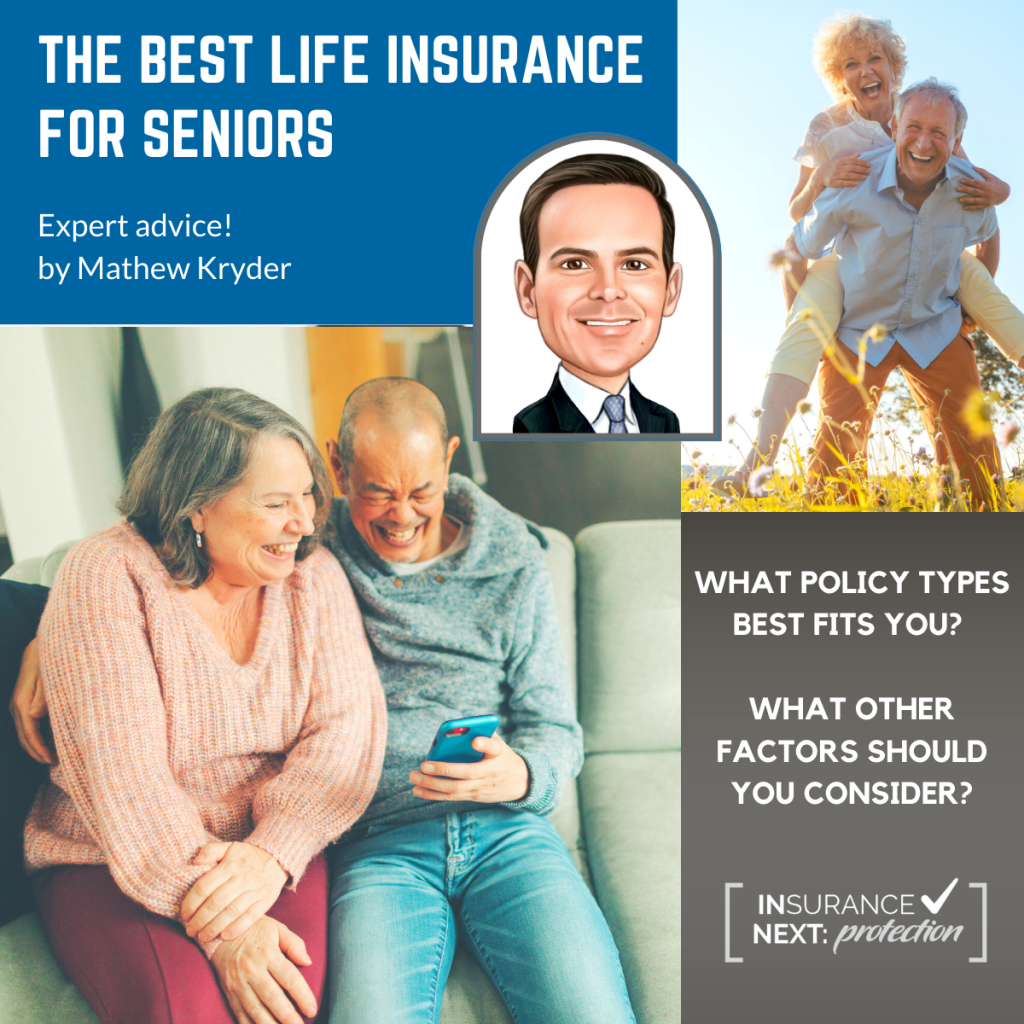Finding the Best Life Insurance for Seniors
How can seniors determine what type of life insurance policy is the best fit for them?
There are basically two types of life insurance: term and permanent. Term insurance is designed to pay a death benefit in the unlikely event you die during the term period. Depending on your age, the term period could be 1–5–10–15 years or more. Permanent insurance, by contrast, is designed to pay a death benefit to your beneficiaries upon your death, regardless of when you die.
Term insurance is often thought of as “cheaper” than permanent. However, term insurance typically “costs more” to the insured’s family because there is such a low probability of a death claim during the term period, and the premiums have already been paid. Although permanent life insurance requires higher premiums than term life insurance, the death benefit typically exceeds the cost of the insurance if it is designed correctly.
The policy’s design depends on your needs and goals. If the goal is to replace a working spouse’s income or cover a debt, such as a mortgage, term life insurance may be appropriate. If the goal is to maximize your estate, maximize your pension or reimburse the family for potential medical and final expenses, permanent life insurance would be more appropriate. Charitable causes may also take financial priority and can be funded with either type of life insurance.
Policies can also be designed where the death benefit is accessible before death to pay for critical care and long-term care expenses. A long-term care event’s financial and emotional impact can be devastating to a family. So a life insurance policy that provides long-term care benefits can provide much-needed resources so you do not burden those you love while protecting your assets.
Ultimately, speaking with a trusted insurance advisor is the way to go.
Why might the best type of life insurance policy be different for older seniors versus younger seniors?
Your financial situation may have changed, so life insurance could either become more affordable or less affordable, depending on changes in your income and assets.
Likewise, priorities may shift, and so your goals for purchasing life insurance may change. For example, if your mortgage is paid off, there is no longer a need to cover this debt. Estate planning, on the other hand, typically becomes a higher priority as we get older.
The beneficiaries themselves may also impact the financial need for life insurance. Changes in the lives of the people most important to you, such as divorce, death, marriage or the birth of grandchildren, would likely change your needs.
Lastly, the cost of insurance increases with age and medical conditions. Our health rarely improves as we get older. Your health and age determine your insurability.
Beyond cost and policy type, what other factors should seniors consider when looking for the best life insurance?
The amount of benefit and duration of coverage needed are two important factors. Also, the financial strength of the insurance carrier is very important; you’ll want the carrier to have the ability to pay a claim when needed!
READ MONEYGEEK article here: https://www.moneygeek.com/insurance/life/best/seniors/#expert=mathew-kryder-mba-cltc










